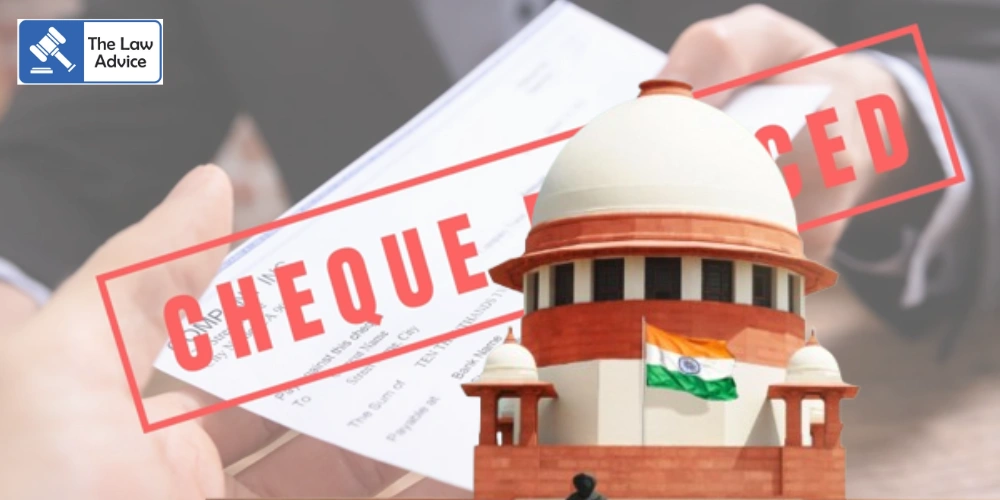The Supreme Court has recently modified the cost guidelines governing the compounding of cheque dishonour cases under Section 138 of the Negotiable Instruments Act, 1881, first laid down in Damodar S. Prabhu v. Sayed Babalal H. (2010).
A division bench comprising Justice Manmohan and Justice N.V. Anjaria, while deciding Sanjabij Tari v. Kishore S. Borkar & Anr., observed that given the persistently high pendency of cheque bouncing cases across the country and the prevailing decline in interest rates, there was a pressing need to “revisit and tweak” the earlier framework.
The Court laid down a new graded system of costs for compounding based on the stage of the proceedings at which the accused makes payment of the cheque amount:
1. Before Recording of Defence Evidence
• If the accused pays the cheque amount before recording of defence evidence, the Trial Court may permit compounding without imposing any additional cost or penalty.
2. After Recording of Evidence but Before Judgment (Trial Court Stage)
• If payment is made after the recording of the accused’s evidence but prior to pronouncement of judgment, compounding may be allowed subject to payment of an additional 5% of the cheque amount as costs, to be deposited with the Legal Services Authority or any other authority designated by the Court.
3. Before Sessions Court/High Court (Appeal or Revision Stage)
• Where the matter reaches the Sessions Court or High Court, the offence may be compounded if the accused pays 7.5% of the cheque amount as costs.
4. Before the Supreme Court
• If payment is tendered at the apex court stage, compounding will be allowed upon payment of 10% of the cheque amount as costs.
The Court further clarified that if the accused expresses willingness to comply with these guidelines, courts at various levels may proactively suggest compounding as a means to expedite resolution.
The judgment also addressed scenarios where complainants or financial institutions insist on recovery beyond the cheque amount, such as repayment of entire loans or other dues. In such circumstances, the Magistrate may guide the accused to:
• Plead guilty, invoking the powers under Sections 255(2) and 255(3) CrPC or Section 278 of the Bharatiya Nagarik Suraksha Sanhita, 2023, or
• Seek relief under the Probation of Offenders Act, 1958, depending on the facts of the case.
Under the earlier Damodar S. Prabhu guidelines, the costs were significantly higher:
• Compounding at the first or second hearing was exempt from costs.
• At subsequent stages before the Magistrate, costs were 10% of the cheque amount.
• At the Sessions Court or High Court level, the costs escalated to 15%, and at the Supreme Court stage, a steep 20% of the cheque amount was imposed.
The present modification therefore substantially reduces the financial burden on accused persons at later stages of litigation, making compounding a more pragmatic and accessible option.
By lowering the compounding costs and streamlining the process, the Supreme Court aims to strike a balance between deterring delayed settlements and facilitating quicker resolution of cheque dishonour cases. This reform is expected to significantly reduce pendency while still ensuring fairness to complainants.
